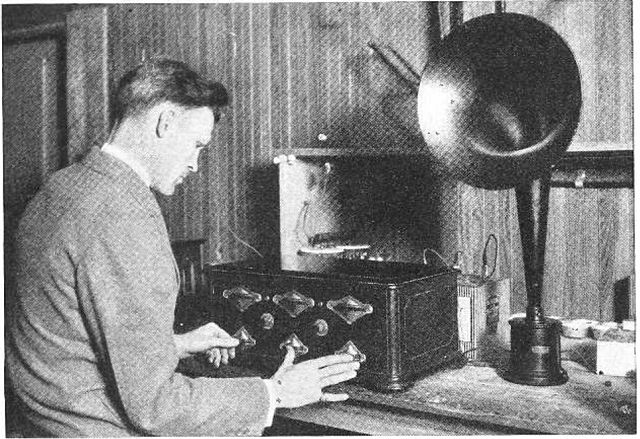
The review of Australia’s media reach in the Asia–Pacific is an orphan inquiry that has the chance to do great work. The responsible adults didn’t want the orphan, but they really need it.
The Coalition government didn’t seek the inquiry. Nor did the Australian Broadcasting Corporation like the way the inquiry was born. Yet now the orphan is up and running, it can offer answers and options both the government and the ABC need.
The media review is the progeny of a political deal (to win a parliamentary vote) that could deliver important policy. Such strange things happen in Canberra all the time. In theory, governments set up reviews to investigate difficult issues and offer solutions. Yes, minister, up to a point, but there’s always the dark art side …
Four dark reasons for an inquiry are:
- To deliver a pre-determined answer (writing terms of reference is a vital subset of this category).
- To defuse, delay or defer a political or policy headache.
- To seal a deal.
- To desert a leaky ship—to set the stage to shift or abandon policy.
The Asia–Pacific policy review delivers on one part of a deal the government made with then Senator Nick Xenophon to get his vote for changes to Australian media law.
The Xenophon agreement explains the rather limp justification the orphan inquiry offers for its existence, saying that last September, ‘the Government agreed to conduct a review of Asia Pacific Broadcasting Services’.
Here’s hoping that as well as the political-fix needs of dark arts category 3, the inquiry is going to stride into category 4 territory—preparing the way to shift policy.
To get the changes that Australia needs in its international media thinking, the government and the ABC will have to bury a lot of recent nastiness and bickering. Certainly, the times demand such a switch of tone and shift of policy. The review of Oz media interest/role/future in the Asia–Pacific is a chance for a Canberra re-do.
The government can overturn its own poor and petty decisions that have damaged our international voice. And the ABC can use the opportunity to repair and recover its role as the Oz international broadcaster, a core Charter responsibility that Aunty has been shedding. Asia and the South Pacific demand new thoughts and myriad means—media and communications are an important element. And this element of Oz policy has been withering.
The review ‘to assess the reach of Australia’s media in the Asia Pacific region’ will find that Australia has been reaching less and less. Australia retreats from the Asia–Pacific media arena as the contest intensifies. The liberal rules-based international order sags and struggles and strains. Fake news abounds. Great power competition builds.
No good crisis should go to waste: thus, tough times call for a substantial rethink of Australia’s media voices in the Asia–Pacific, as an integral part of our strategy for confronting the new abnormal of international power.
The inquiry can deliver vital thoughts about how Australia should be talking with the near neighbours in the South Pacific and Southeast Asia, and with the broader region. Please note: talking with, not to.
In the South Pacific, Australia’s policy re-do should be based on a lot of listening to the region on the importance of Australia’s silenced shortwave service and the Australian media role in the Islands.
The inquiry has the delicate task of stepping through the ruin of past government and ABC actions. There’s still smoke and debris from the Coalition’s decision to axe the ABC’s $220 million, 10-year contract to run the Asia–Pacific television service, Australia Network. That chop happened in the first year of the contract.
The Abbott government action was a sad example of Australian international interests being trampled by domestic argy-bargy because of deeply-entrenched hang-ups about the ABC. The Liberal Party fear of the ABC was succinctly expressed long ago by John Howard’s consigliere Graham Morris: ‘The ABC is our enemy talking to our friends.’
The enemy/friends tension is a backhanded tribute to the importance of the ABC and its influence across Australian society. For many decades, that ABC influence reached beyond our borders. The domestic politics of the old Liberal battle with Aunty has obscured the ABC’s traditional role as a major media voice in our neighbourhood.
The constant Coalition squeeze on the ABC budget has had an important unintended consequence—sapping not just ABC resources but the ABC’s focus on its charter responsibility for international broadcasting.
The ABC must confront its loss of international focus. Closing down the shortwave service to the South Pacific last year was the act of a myopic organisation. The ABC discarded its shortwave audience by degrading the signal, an act of technological bastardry.
Last year’s Senate inquiry into the shortwave shutdown—inspired by Nick Xenophon—set the scene for this new Foreign/Communications inquiry. The Senate majority report recommended against legislation to overturn the shortwave decision, saying this would infringe on the ABC’s independence. But you’ll find plenty in that Senate report on why it was a bad (and bastard) move by Aunty: the ABC decided on its own interests and told the South Pacific it no longer needed shortwave.
The new inquiry should listen to the Pacific view that shortwave is still vital. It’d be a welcome change, listening to what the Islands say they need, rather than telling them what they’ll get.
Reviving shortwave should be one part of a much bigger project: to revive the ABC as an international broadcaster and to create a 21st-century voice for Australia across the Asia–Pacific.
To be continued …

